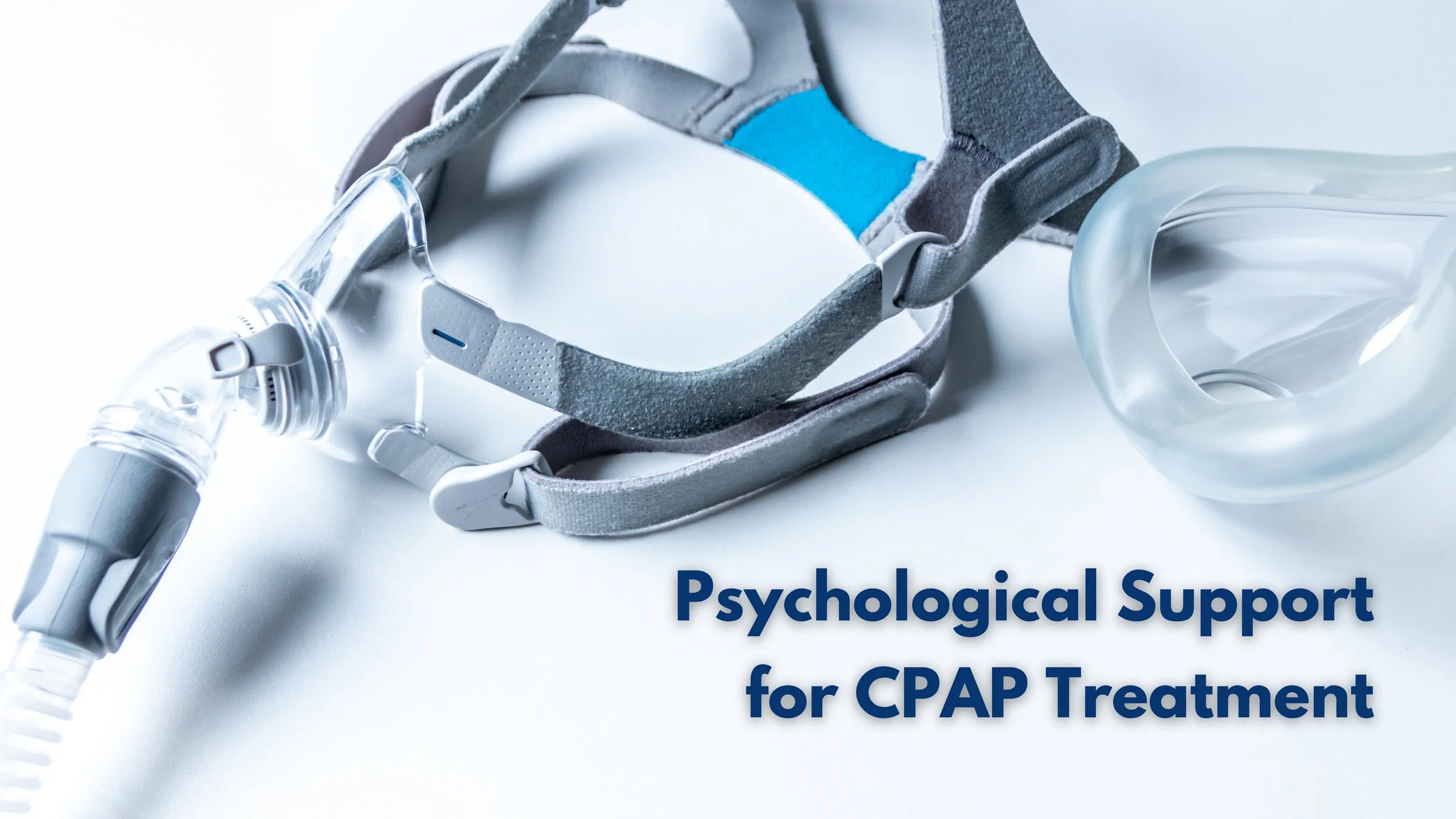Psychological Support for CPAP Treatment
Obstructive Sleep Apnea (OSA) is a prevalent sleep disorder in Singapore, with 3 in 10 Singaporeans having a moderate-to-severe form of the disorder. Left untreated, OSA can lead to significant daytime sleepiness and impairment and significantly impact one's health in the long term.
If you have been diagnosed with OSA, your healthcare provider may have recommended Continuous Positive Airway Pressure (CPAP) therapy as an effective treatment. However, committing and sticking to this treatment can be challenging. A 2018 study showed that many patients reject this treatment at the time of diagnosis and after a trial period using the device (Tan et al., 2018).
A Multi-Pronged Approach to Overcoming CPAP Obstacles
The reluctance to use a CPAP device is understandable. Many patients fear that they will have to undergo this treatment for life, incurring substantial expense and inconvenience. Other common obstacles include discomfort, mask fit issues, and feelings of claustrophobia. Many people find it hard to adjust to the sensation of continuous airflow during sleep. Additionally, you may be experiencing psychological barriers such as fear or scepticism about the treatment's effectiveness.
Helping our clients overcome these obstacles often requires a multi-pronged approach. In the first instance, motivated patients with milder sleep apnea may wish to consider a more conservative approach first to see if lifestyle or behavioural changes can resolve the issue. These changes might include one or more of the following:
Sleep Hygiene: Maintaining good sleep hygiene means adopting a set of good practices that promote good sleep. An important element of this is keeping a consistent sleep schedule; going to sleep and waking up at approximately the same times every day (including weekends). Creating a sleep-conducive environment, and eliminating sleep disruptors like caffeine and electronic devices before bedtime are also essential to good sleep hygiene.
Weight Management: Excess weight is often a contributing factor to OSA. Committing to weight loss by sticking to a healthy diet and exercise program can sometimes make the difference between needing CPAP treatment and not.
Positional Therapy: Sleeping on your side rather than on your back can reduce the severity of sleep apnea symptoms, and certain devices and techniques are empirically supported to help patients make this change.
Relaxation Techniques: Stress and anxiety affect sleep quality even in healthy sleepers, and poor stress management can also exacerbate sleep apnea symptoms. To counter this, therapists can teach you relaxation exercises and mindfulness exercises which can be helpful in reducing OSA symptoms when practiced regularly.
If lifestyle modifications are insufficient to correct sleep-disordered breathing, treatment with CPAP remains one of the most effective treatment options. If this seems like a daunting and unpleasant prospect, know that having the right care team can make all the difference in the success of your treatment. Technological improvements in mask-fitting and device engineering, and the increasing availability of telemonitoring are useful services that a good provider can offer.
The Role of Behavioral and Social Support
In addition, behavioural and social support using a patient-centered approach can be critical ingredients for good long-term outcomes. Cognitive-behavioural therapy and motivational interviewing are two effective approaches that can be employed by a trained practitioner.
Cognitive-behavioural therapy (CBT) is a suite of techniques that are widely used in psychotherapy. In this approach, a therapist will work with you to identify the thoughts and feelings that can be barriers to regular use of your CPAP device. This can often provide you with a more objective and realistic picture of the benefits and drawbacks of receiving treatment. CBT can also be very effective in helping you reduce any anxiety you might be feeling about your diagnosis and the CPAP treatment.
Motivational interviewing is a collaborative method that involves open conversations, realistic goal-setting, building confidence and self-efficacy, and addressing barriers and obstacles to compliance. Through dialogue with a counselor or therapist, you’ll be encouraged to work with feelings of uncertainty and ambivalence and come to a clearer decision about whether embarking on CPAP treatment is right for you. Having this support can help you find and boost your intrinsic motivation to improve your long-term health and sleep quality. Both CBT and motivational interviewing have proven effective in improving CPAP adherence.
Adherence to CPAP therapy may be challenging, but with the right approach and support, it is achievable. Through our new collaboration with Somnus Sleep Wellness, we are now able to offer behavioural support with qualified therapists for OSA patients at all stages of the decision-making process about their treatment. Reach out today if you would like more information on receiving these options for your care.

